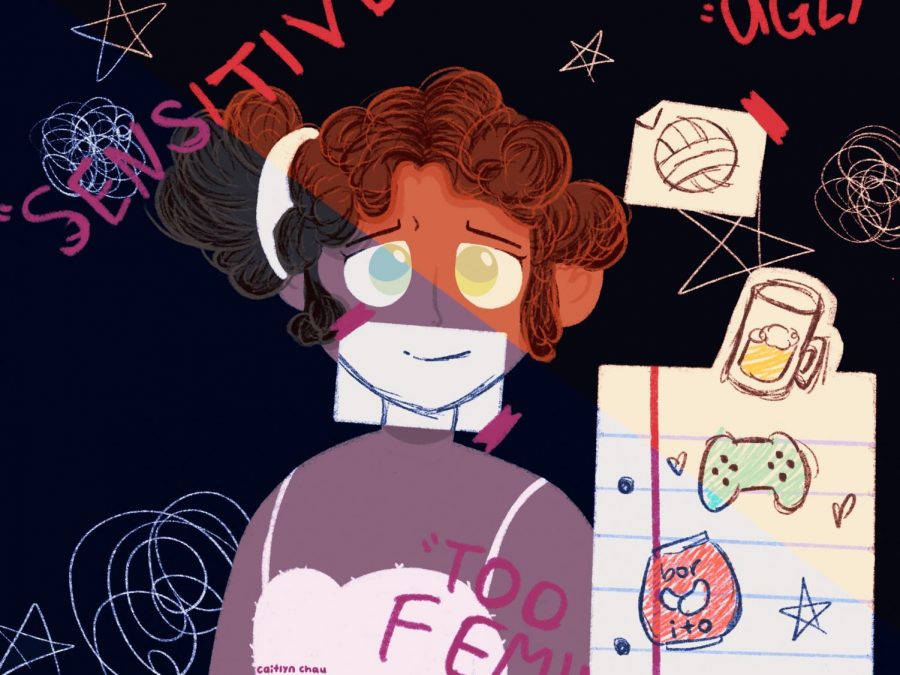The “Cool Girl” Trope: An Impossible Standard for Women
November 15, 2021
If you’ve been on social media recently, you’ve undoubtedly heard of the phrase “Cool Girl”. The Cool Girl is a trope often used in movies and television—a brand of girl who’s known as “one of the guys”. The Cool Girl most likely has a passion for cars, sports, or any other male-dominated interest and reflects the protagonist’s passions. She is raunchy, free-spirited, and fun-loving. The Cool Girl loves eating greasy, unhealthy junk foods and drinks beer with no shame, yet still remains effortlessly skinny. The Cool Girl is most valued for her lack of emotion; she doesn’t care about nor need a man, and is emotionally detached in a way that excuses the protagonist from all responsibility. All in all, the Cool Girl is a male fantasy made by men and perpetuated by women.
This trope was first given a name and criticized by the 2012 bestseller Gone Girl by Gillian Flynn. In the novel, the main character Amy Dunne struggles in her marriage with an unfaithful husband and resolves to frame him for her murder. The 2014 film adaptation of this famous story contained the famous “Cool Girl” monologue, which first gave rise to the use of the term.
“Being the Cool Girl means I am a hot, brilliant, funny woman who adores football, poker, dirty jokes, and burping, who plays video games and drinks cheap beer,” Flynn’s protagonist Dunne said.
The Cool Girl creates an unrealistic ideal which women strive to meet and inevitably fail, as she isn’t a real person. The Cool Girl is the personification of the male fantasy; she looks and acts exactly how a man wants her to, and thus is impossible to personify in reality. Despite this, many young women strive to masquerade as this persona in order to fit in with the girls they see in the media.
Arguably, the most dangerous thing about the Cool Girl is her passivity.
“Hot and understanding. Cool Girls never get angry; they only smile in a chagrined, loving manner and let their men do whatever they want,” Flynn said.
Media examples like Donna from That 70’s Show, Robin from How I Met Your Mother, Mary from There’s Something About Mary, and most notably, Mikaela from Transformers compel women to believe they must fit into this image in order to be desirable. Celebrities continue to perpetuate this image as well, and this is seen in American actress Jennifer Lawrence. Lawrence, known for her characteristically unedited and quirky persona, has often been criticized for being too fake and trying to perpetuate the image of being “one of the boys”. By constantly swearing, emphasizing the unhealthy foods in her diet, and trying to be relatable, Lawrence has been attacked for trying to project a Cool Girl image. While it’s unsure whether this is her true nature or just a projection, after being called out for it, Lawrence’s public personality began to fade.
Another problem perpetuated by this trope? The Cool Girl in her essence is inherently misogynistic. The introduction of the Cool Girl is often utilized to put down another type of girl, a girl who is uptight, classically feminine, and emotional. In 2008 RomCom Forgetting Sarah Marshall, amature musician Peter Bretter struggles to get over his breakup with cold, detached actress Sarah Marshall. Peter uses the impulsive, free-spirited Rachel Jansen to accomplish this, and her cool persona is shown as an obvious step up from his previous, un-attached girlfriend. This trope sets up the myth that the cool girl is superior to another “kind” of woman– a multifaceted and realistic woman.
The Cool Girl doesn’t suggest that there is anything wrong with this distinction. In fact, she enforces it.
“The Cool Girl doesn’t even suggest there’s anything wrong with the man-woman hierarchy as it stands… All the Cool Girl demands is that she be seen as an exception,” Sarah Ditum, author for the magazine New Statesman, said.
In all her entirety, the Cool Girl can serve as a lesson to young women in the importance of authenticity. Trying to perpetuate an unrealistic image which is untrue to yourself can have dangerous consequences, so be true to you!

